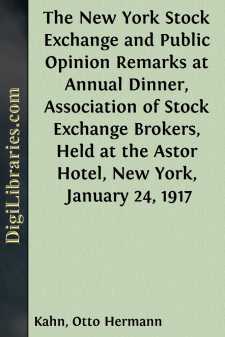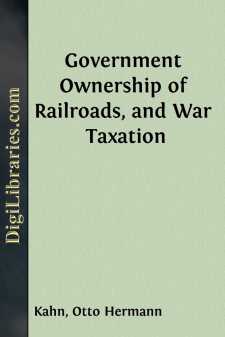Categories
- Antiques & Collectibles 13
- Architecture 36
- Art 48
- Bibles 22
- Biography & Autobiography 813
- Body, Mind & Spirit 142
- Business & Economics 28
- Children's Books 17
- Children's Fiction 14
- Computers 4
- Cooking 94
- Crafts & Hobbies 4
- Drama 346
- Education 46
- Family & Relationships 57
- Fiction 11829
- Games 19
- Gardening 17
- Health & Fitness 34
- History 1377
- House & Home 1
- Humor 147
- Juvenile Fiction 1873
- Juvenile Nonfiction 202
- Language Arts & Disciplines 88
- Law 16
- Literary Collections 686
- Literary Criticism 179
- Mathematics 13
- Medical 41
- Music 40
- Nature 179
- Non-Classifiable 1768
- Performing Arts 7
- Periodicals 1453
- Philosophy 64
- Photography 2
- Poetry 896
- Political Science 203
- Psychology 42
- Reference 154
- Religion 513
- Science 126
- Self-Help 84
- Social Science 81
- Sports & Recreation 34
- Study Aids 3
- Technology & Engineering 59
- Transportation 23
- Travel 463
- True Crime 29
The New York Stock Exchange and Public Opinion Remarks at Annual Dinner, Association of Stock Exchange Brokers, Held at the Astor Hotel, New York, January 24, 1917
Categories:
Description:
Excerpt
A couple of weeks ago I went to Washington to contradict under the solemn obligation of my oath a gross and wanton calumny which, based upon nothing but anonymous and irresponsible gossip, had been uttered regarding my name.
On my way between New York and Washington, thinking that, once on the stand, I might possibly be asked a number of questions more or less within the general scope of the Committee's enquiry, I indulged in a little mental exercise by putting myself through an imaginary examination.
With your permission, I will read a few of these phantom questions and answers:
Should the Exchange Be "Regulated"?
Question:
There is a fairly widespread impression that the functions of the Stock Exchange should be circumscribed and controlled by some governmental authority; that it needs reforming from without. What have you to say on that subject?
Answer:
I need not point out to your Committee the necessity of differentiating between the Stock Exchange as such and those who use the Stock Exchange.
Most of the complaints against the Stock Exchange arise from the action of those outside of its organization and over whose conduct it has no control. No doubt there have at times been shortcomings and laxity of methods in the administration of the Stock Exchange just as there have been in every other institution administered by human hands and brains.
Some things were, if not approved, at least tolerated in the past which are not in accord with the ethical conception of to-day.
The same thing can be said of almost every other institution, even of Congress. Until a few years ago, the acceptance of campaign Should the Exchange be regulated? contributions from corporations, the acceptance of railroad passes by Congressmen and Senators were regular practices which did not shock the conscience either of the recipients or of the public. Now they have rightly been made and are looked upon as crimes.
Ethical conceptions change; the limits of what is morally permissible are drawn tighter. That is the normal process by which civilization moves forward.
The Stock Exchange has never sought to resist the coming of that higher standard. On the contrary, in its own sphere it has ever endeavored to maintain an exemplary standard, and it has ever shown itself ready and willing to introduce better methods whenever experience showed them to be wise or suggestion showed them to be called for.
In its regulations for the admission of securities to quotation, in the publicity of its dealings, in the solvency of its members, in its rulesShould the Exchange be regulated? regulating their conduct and the enforcement of such rules, the New York Stock Exchange is at least on a par with any other Stock Exchange in the world, and, in fact, more advanced than almost any other.
The outside market on the curb could not exist if it were not for the stringency of the requirements in the interest of the public which the Stock Exchange imposes in respect of the admission of securities to trading within its walls and jurisdiction.
There is no other Stock Exchange in existence in which the public has that control over the execution of orders, which is given to it by the practice—unique to the New York Stock Exchange—of having every single transaction immediately recorded when made and publicly announced on the ticker and on the daily transaction sheet....






